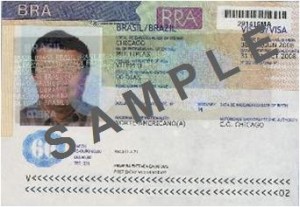I have been doing business in Brazil for a decade now. That experience has shown me that doing business in Brazil has great rewards for investors, but also presents a series of challenges.
With growth rates above G-7 countries, investment grade, current GDP close to 2 trillion, inflation under control, a relatively comfortable balance of payments, a market of 190 million people, and a strong manufacturing and commodities production base, Brazil is attracting a lot of interest.
Any investor thinking in doing business in Brazil needs to have key information regarding: (a) how to enter the market, (b) sources of funding, (c) investment incentives, (d) taxes, (e) labor, and (f) international trade.
How to enter the market: The main ways to enter Brazil are through: (a) Sales representation or a distribution network, (b) setting up a subsidiary or a branch, or (c) acquire a company.
Setting up sales representation and distribution networks is challenging even though it saves costs when compared to the incorporation of a subsidiary. The challenges are mostly related to finding the right individual or company and the potential lack of control over the way third parties distribute your products and deal with your trademarks.
In starting up a company, most likely you will have to decide if you start a corporation or a LLC. There are some key differences with the type of LLCs and corporations we have in the US.
Acquiring a company presents its own challenges as well. M&A activity in Brazil increased sharply during the last few years. Most transactions in Brazil are in the range of US$10-US$50 million. Some of the issues in company acquisition are: informal practices (income not recorded), unregistered employees, aggressive tax planning, low quality of financial information and controls, high number of tax lawsuits, and succession risks. Thus, a high quality due diligence is a must in the pre-acquisition phase.
Sources of Funding: Ideally, capital should come from the parent company, since bank credit is very expensive. According to the Brazilian Central Bank, the median interest rate for a working capital loan from a commercial bank is about 28% per year and the median for a capital expenditures loan is around 23% per year. Larger companies, though, might tap the public markets through issuance of stock and/or bonds and notes. Other traditional forms of financing are available as well. For long-term financing, Brazilian firms use the Brazilian Development bank (BNDES).
Investment incentives: I categorize those by geographical area, for international trade and by economic sector. Some states and cities offer tax incentives, free land and building leases. There are other incentives for industrial and agricultural technology, oil and gas, infrastructure, port facilities, the semiconductor industry, and the industry of equipments for digital TV. There are also tax incentives for exports and export focused companies.
Taxes: Brazil has a complex tax system. Even though the direct tax system is relatively straight forward, the indirect tax system is complicated. Brazil has foreign tax exemption and credit, its own pricing transfer rules, tax loss carry forwards (offset up to 30% of taxable base per year), heavy penalties for delay of payments and fraud, and no tax treaty with the US. It does not have tax carry backs.
Labor: Labor cost inflation in Brazil is among the highest in Latin America. Decrease in unemployment and the strengthening of the Real against the dollar increased salaries in dollar terms. There is also a myriad of labor charges besides salaries.
International trade: Export revenues are generally tax exempt, except for corporate taxes. Even though the Brazilian government has tried to simplify and lower import tariffs over time, still there are a number of taxes foreign investors have to know. Brazilian importers also have a series of special custom regimes.
Foreign firms reap high rewards when investing in Brazil. Rates of return are generally higher than here in the US. It is a market with a great future. However, foreign investors, be aware of the key issues you need to consider before investing in Brazil.
Luis Fernando Lopez Cobo, PhD, is President of Mergium Advisors, an M&A, capital raising, business valuation, and business intelligence firm based in South Florida.




